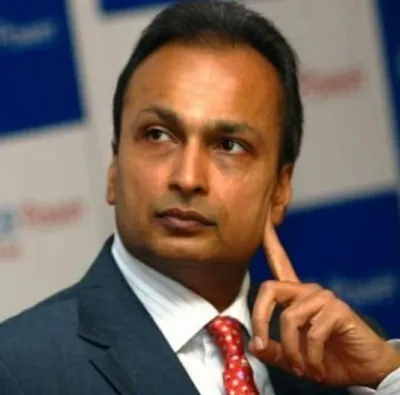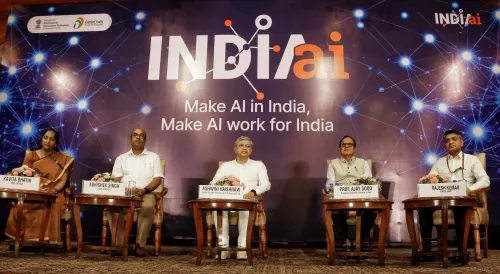Is There No Legal Flaw in SBI's Fraud Declaration Against Anil Ambani and Reliance Communications?

Synopsis
Key Takeaways
- The Bombay High Court upheld SBI's fraud classification.
- Ambani did not receive a personal hearing.
- SBI's decision was based on fund diversion and covenant breaches.
- The case emphasizes corporate accountability.
- Regulatory frameworks guide banks' actions.
Mumbai, Oct 7 (NationPress) The Bombay High Court has affirmed the State Bank of India’s classification of the loan accounts held by industrialist Anil Ambani and Reliance Communications as fraudulent, declaring that the bank's decision was both legally valid and justified, as per an order made public by the court on Tuesday.
A division bench consisting of Justices Revati Mohite Dere and Neela Gokhale dismissed Ambani’s petition on October 3, contesting the SBI's ruling. The comprehensive judgment released on Tuesday concluded that the June 13 directive from the public sector bank exhibited no legal defects, thus not necessitating any interference.
Ambani contended that the order was flawed as he had not been afforded a personal hearing nor had access to all pertinent documents.
However, the court countered this argument, noting that the Reserve Bank of India’s Master Directions—which regulate such proceedings—restrict the rights of borrowers to submitting written representations, without any entitlement to a personal hearing.
The high court emphasized that Ambani’s claims were unsubstantiated and upheld that SBI’s fraud classification of the accounts was legally sound.
The court remarked that the bank designated the accounts as fraudulent only after Ambani neglected to respond to the show-cause notice issued by SBI last year.
Previously, on June 13 this year, SBI marked the loan accounts of Reliance Communications (RCom) and its promoter, Anil Ambani, as fraudulent.
The bank cited reasons including fund diversion, violation of covenants, and related-party transactions, prompting it to involve the Central Bureau of Investigation (CBI) for further action.
Anil Ambani challenged this classification, arguing he was merely a non-executive director and had been unfairly targeted. He claimed that he had not been given a proper opportunity to defend himself against the bank's accusations.
Another public sector bank, Bank of Baroda, had similarly classified the loan accounts of Reliance Communications Ltd (RCom) and its former director Anil Ambani as fraudulent.
This classification related to loans taken prior to RCom’s entry into the corporate insolvency resolution process (CIRP), as stated by the bank in an exchange filing.









